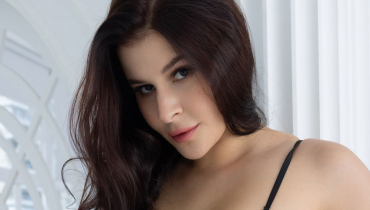For years, Zoe Mitchell considered herself a night owl — creative at midnight, productive past 2 a.m., and constantly running on caffeine. But as her career in tech grew more demanding, her sleepless nights turned from a quirk into a crisis.
“I’d lie in bed staring at the ceiling, replaying my to-do list over and over,” she recalls. “Even when I was exhausted, my brain wouldn’t shut up.” When over-the-counter sleep aids failed, she turned to something she once dismissed as “new-age nonsense”: mindfulness for sleep improvement.
What started as a last resort soon became a life-changing discovery. “I didn’t expect much,” she admits. “But the first night I tried mindful breathing, I actually fell asleep without even realizing it. That’s when I knew — this wasn’t a gimmick. It was a reset.” NatureWise Vitamin D3 5000iu (125 mcg) 1 Year Supply for Immune Support, Healthy Muscle Function, and Bone Health – Non-GMO, Gluten Free in Organic Extra Virgin Olive Oil, (Mini Softgel), 360 Count
The Wake-Up Call: When Sleeplessness Becomes a Lifestyle
According to the Sleep Foundation, over 30% of adults in the U.S. experience short-term insomnia, and about 10% suffer from chronic insomnia lasting months or even years. Zoe was one of them. “It’s like being trapped in a loop — the less you sleep, the more anxious you get about not sleeping, which makes sleep even harder,” she says. “It’s mental exhaustion disguised as wakefulness.”
At her lowest point, Zoe averaged just four hours of rest per night. “My skin broke out, my focus disappeared, and I started snapping at people I cared about,” she recalls. Her doctor warned her that prolonged sleep deprivation could raise the risk of depression, heart disease, and weight gain. The National Institutes of Health (NIH) confirms that sleep impacts nearly every system of the body — immune, cardiovascular, cognitive, and emotional. “That scared me,” Zoe says. “I realized I wasn’t just tired — I was sick.”
Traditional solutions like melatonin supplements and screen detox routines didn’t work. “My problem wasn’t falling asleep,” she explains. “It was switching off mentally.” That’s when she discovered mindfulness — a practice rooted in awareness, acceptance, and present-moment focus. “I didn’t need to force sleep,” she says. “I needed to stop fighting it.”
Discovering Mindfulness: A Different Kind of Sleep Aid
Mindfulness is more than meditation — it’s a shift in how you relate to your thoughts. Zoe learned this through a friend who invited her to an online mindfulness course during the pandemic. “The instructor told us, ‘Don’t chase sleep. Befriend it.’ That line stuck with me,” she says.
Each night, Zoe practiced a simple breathing technique: inhale for four seconds, hold for four, exhale for six. “At first, my mind wandered constantly,” she admits. “But instead of getting frustrated, I started observing my thoughts like clouds — there, but passing.” Slowly, her heart rate lowered, her muscles relaxed, and her anxiety eased. Within two weeks, she was sleeping through the night. “It wasn’t about trying harder — it was about trying less,” she says with a smile.
Her experience reflects what experts have long known. Research from Harvard Health shows that mindfulness-based meditation can improve sleep quality by reducing cognitive hyperarousal — the racing thoughts and emotional reactivity that keep people awake. “Mindfulness activates the parasympathetic nervous system,” explains Dr. Melissa Harris, a clinical psychologist at UCLA. “That’s the body’s ‘rest and digest’ mode — the opposite of fight-or-flight.”
The Science Behind Mindful Sleep
When stress hormones like cortisol stay elevated, your body can’t transition into the deep, restorative stages of sleep. Mindfulness interrupts this pattern. By focusing attention on breath and bodily sensations, it signals to the brain that it’s safe to relax. “It’s basically teaching your nervous system that rest is not a threat,” Zoe says.
According to the Mayo Clinic, mindfulness exercises — including progressive muscle relaxation, body scans, and guided imagery — help reduce nighttime anxiety and increase melatonin production naturally. In one study, participants who practiced mindfulness for six weeks improved their sleep efficiency by 26% compared to those using traditional relaxation alone.
“I used to think my problem was insomnia,” Zoe reflects. “But it was really overstimulation — too much thinking, too much scrolling, too much noise. Mindfulness gave me permission to pause.”
Zoe’s Mindful Routine for Better Sleep
Through trial and error, Zoe developed her own bedtime ritual — a combination of mindfulness, environment, and self-compassion. “It’s not fancy,” she says. “It’s just consistent.”
-
- 1. Dimming the lights one hour before bed: This cues the body’s circadian rhythm. “I use warm amber bulbs instead of harsh white light,” she says.
-
- 2. Digital sunset: Zoe sets her phone to “Do Not Disturb” mode and puts it across the room. “Mindfulness starts by removing distractions,” she explains.
-
- 3. Mindful breathing: Ten minutes of deep breathing — inhale 4, hold 4, exhale 6 — followed by gratitude reflection. “It helps me shift from doing to being.”
-
- 4. Body scan meditation: Slowly relaxing each muscle from toes to forehead. “I picture each muscle melting like wax,” she says.
-
- 5. Acceptance instead of frustration: “If I can’t sleep, I don’t panic. I remind myself that rest is still rest.”
Her mantra? “The body knows how to sleep — you just have to stop interrupting it.”
Why Mindfulness Works Long-Term
Unlike pills or supplements, mindfulness doesn’t manipulate the body — it retrains it. Studies from the National Center for Biotechnology Information (NCBI) show that mindfulness-based stress reduction (MBSR) decreases nighttime cortisol levels and strengthens prefrontal cortex regulation — helping people recover from chronic insomnia without dependency.
Dr. Harris notes: “When people practice mindfulness regularly, they not only fall asleep faster but wake up less during the night. It’s sustainable because it builds internal skills rather than relying on external aids.” Zoe experienced exactly that. “My sleep became calmer, deeper — not chemically induced,” she says. “It’s like my body remembered how to rest.”
Mindfulness Beyond the Pillow
As her sleep improved, Zoe noticed ripple effects throughout her life. “I stopped needing three cups of coffee. My mood stabilized. I started enjoying mornings,” she says. Mindfulness became more than a nighttime practice — it became a mindset. She used it during work stress, commutes, and even conversations. “I learned to catch my breath before reacting,” she says. “It’s amazing how much energy you save when you’re not fighting reality.”
She even joined a local mindfulness community, where she helps newcomers struggling with anxiety and insomnia. “I always tell them, mindfulness doesn’t fix sleep — it fixes your relationship with rest,” she says. “When you stop fearing sleeplessness, it stops controlling you.”
Research supports her insight. The Sleep Foundation reports that mindfulness practices reduce nighttime rumination — repetitive thinking about stressors — and improve emotional regulation during the day. This creates a positive feedback loop: less daytime anxiety means better nighttime rest.
Practical Advice from Zoe
For readers curious about trying mindfulness for sleep, Zoe offers actionable tips drawn from experience:
-
- Start with short sessions: “You don’t need to meditate for an hour. Try five minutes before bed. It’s about quality, not duration.”
-
- Use guided meditations: Apps like Headspace, Calm, and Insight Timer have dedicated sleep programs designed by experts.
-
- Combine mindfulness with movement: Gentle yoga or stretching releases tension before rest.
-
- Be patient: “It took me two weeks before I noticed real changes,” she says. “Your mind learns gradually — like any muscle.”
-
- Track your progress: Journaling your mood, bedtime, and energy helps visualize growth.
The Bigger Picture: Reclaiming Rest in a Restless World
In today’s 24/7 culture, sleep is often treated as a luxury rather than a necessity. “We glorify hustle, then wonder why we’re anxious,” Zoe says. “Mindfulness taught me that rest isn’t lazy — it’s essential.” The Centers for Disease Control and Prevention (CDC) classifies insufficient sleep as a public health epidemic, linked to chronic diseases and reduced productivity.
But mindfulness flips that narrative. Instead of adding another task to your list, it invites you to slow down. “Mindfulness isn’t about escaping life,” Zoe says. “It’s about fully living it — rested, aware, and present.” As she reflects on her transformation, Zoe offers one final piece of advice: “Don’t try to fix your sleep — nurture it. The more you chase it, the further it runs. But when you welcome it, it always comes back.”




























































